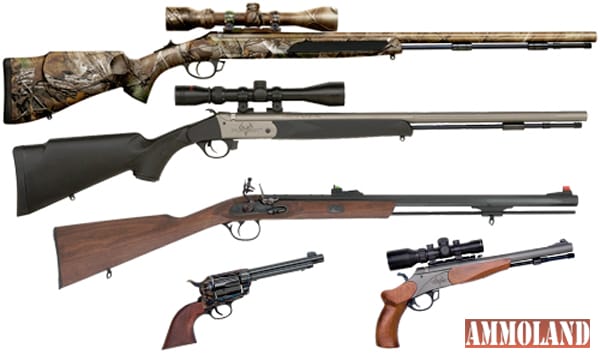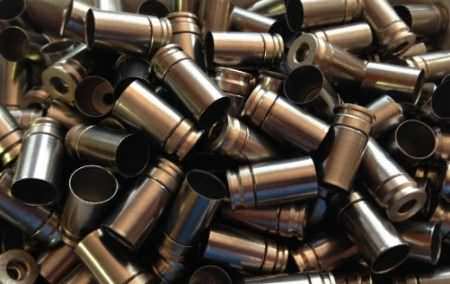By Glen Wunderlich


Lansing, Michigan – -(Ammoland.com)- For those of us that handload their own ammunition, the resulting accuracy can be quite satisfying.
Even though modern factory ammunition rivals that of the do-it-yourselfer, shooters that want to squeeze the most from a given firearm, still build their own loads.
With muzzleloaders, however, each of us becomes a handloader of necessity.
Although many facets of muzzleloading have changed over the past 150 years, – including powder, primers, projectiles and firearms – we still handload each charge one at a time. Traditionalists use genuine black powder, while the modern hunter may opt for black powder substitutes, which minimize the potential for fouling and corrosion.
One of the most popular muzzleloading powders on the market today is Hodgdon’s Triple Seven powder. The modern powder can produce some of the most consistent results and that’s what accuracy-minded handloaders want. This fuel comes in various configurations – pellets of various weights and granular in sizes of FFg and FFFg.
Before getting into granular formations, a few words about the handy pellets are in order: pelletized powder is not consistent. When weighed, they can vary as much as several grains. Add to this malady the fact that the pellets can be damaged by bouncing them around, they become even more inconsistent. Not so with granular.
Good shooters know that granular powder is the key to shot-to-shot consistency but many of today’s hunters have never experimented with Triple Seven powder in its smaller, granular FFFg configuration. And, no, it’s not just for pistols. Like any handloading, however, quality control is the loader’s responsibility and it is always advisable to work up loads with lesser amounts and to follow manufacturer’s instructions.
Because the granules are smaller, the charge will be stiffer with the same volumetric measure – 110 grains being the maximum in modern muzzleloaders. When it comes to shelf life, moisture is the enemy. The sugar-based propellant attracts moisture and that’s why it’s a good idea not to get in the habit of bringing your smokepole indoors after a day in the cold. Condensation may result. Powder that has been kept over the years also deteriorates from age and will produce less velocity.
The notion that black powder substitutes are not corrosive is based in fact, but only to a point. Even though the modern powder is not sulfur based and is not inherently corrosive to metal, it has the same effect if left in the bore.
The powder will corrode firearms, if they are not cleaned properly after use.
If you are sold on the convenience of pellets, consider that it’s only an issue at the practice range. Otherwise, speed loaders can be filled with exact weights in advance and used as backup loads afield.
So, if “good enough” is not in your vocabulary, find out what your modern muzzleloader is really capable of through your own quality control and load development with granular powder.
About Glen Wunderlich
Charter Member Professional Outdoor Media Association (POMA). Outdoor writer and columnist for The Argus-Press (www.argus-press.com) and blog site at www.thinkingafield.org Member National Rifle Association (NRA), Michigan United Conservation Clubs (MUCC), member U.S. Sportsmen’s Alliance (USSA), Quality Deer Management Association (QDMA), Commemorative Bucks of Michigan (CBM). Adjutant of Perry, Michigan Sons of Amvets Post 4064 and Chairman Perry (MI) Youth Hunt Extravaganza, a sanctioned event of Perry Sons of Amvets held the fourth weekend of September each year.


